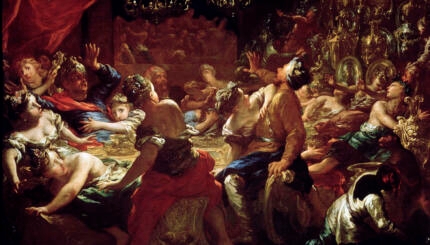The opening of Pirke Avot, one of Judaism’s most frequently cited compendiums of ethical sayings, reads as follows:
Moses received the Torah at Sinai and transmitted it to Joshua, Joshua to the elders, and the elders to the prophets, and the prophets to the Men of the Great Assembly. They said three things: Be patient in justice, raise many disciples and make a fence around the Torah.
Pirke Avot 1:1
In this iconic text, the rabbis describe how the Torah is passed from one generation to the next to form an ongoing chain of transmission.
As a people who have mostly lived as minorities scattered across the globe, Jews in every generation have been scrupulous about passing their traditions forward, knowing that Jewish survival depends on passing the torch to every generational link in that chain. A phrase that has come to represent that sentiment is the Hebrew expression l’dor vador, meaning from generation (dor) to generation. There are several variants on this phrase that all carry a similar meaning, including dor l’dor, l’dor dorim and midor vador.
The phrase l’dor vador and its variants is found many times in the Hebrew Bible, mostly in the Psalms, but also in a few prophetic books. In the Bible, it refers to that which has been established eternally and does not require human effort to sustain. It is essentially a synonym for the word l’olam, meaning forever. Often, it refers to God, for instance:

Help us keep Jewish knowledge accessible to millions of people around the world.
Your donation to My Jewish Learning fuels endless journeys of Jewish discovery. With your help, My Jewish Learning can continue to provide nonstop opportunities for learning, connection and growth.
O Lord, Your name endures forever (l’olam),
Your fame, O Lord, through all generations (l’dor vador ).
Psalm 135:13
In the Hebrew Bible, l’dor vador is also used to affirm Israel’s unending love for God (Psalm 79:13) and the eternal kingship of David (Psalm 89:5).
The phrase l’dor vador and its variants are repeated in many daily Jewish prayers and blessings, including the psalms of Pesukei D’Zimra and Kabbalat Shabbat, the Amidah, Ashrei and Birkat HaMazon. For Jews who pray regularly, this makes it an oft-repeated phrase.
Explore the meaning of another favorite Jewish slogan, Am Yisrael Chai.



